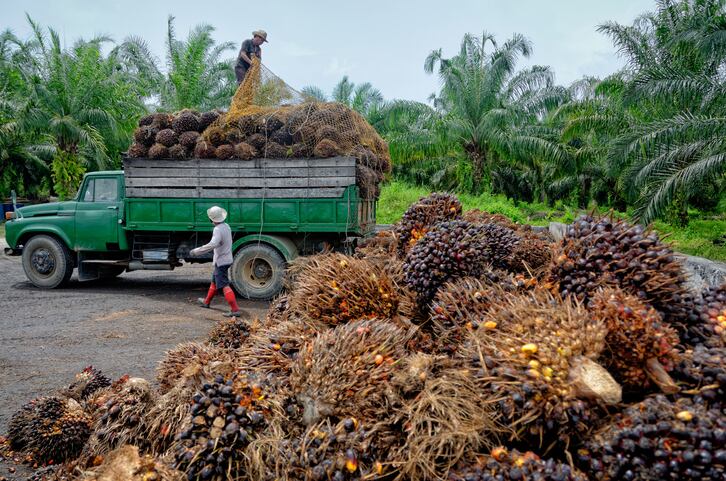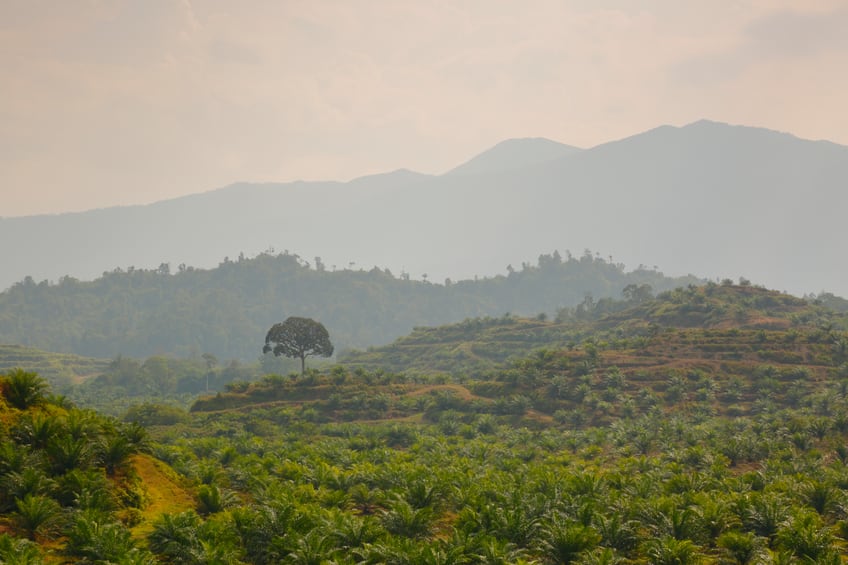Palm oil is promoted as a means of alleviating poverty, despite the limited evidence on its social impact. In a 14-year study, called ‘Does oil palm agriculture help alleviate poverty?’ published in journal World Development, researchers from the University of Kent studied the link between palm oil and poverty alleviation across 6,600 villages in Kalimantan, at the heart of the oil palm industry in Indonesian Borneo, the world’s largest producer of the commodity.
The report concluded that “unsustainable livelihoods, socioeconomic inequality and environmental issues remain major challenges in the oil palm industry… expansion of oil palm production in remote forest areas requires careful planning and evaluation if the communities are to benefit.”
Economic benefits are slower to accrue in areas with oil palm production
The researchers found that improved socioeconomic welfare was found where the villages already had a market-based economy, typically in areas with low forest cover. The opposite was found in remote villages relying on subsistence-based livelihoods and with higher forest cover, as well as in more recent palm plantations. Overall, and regardless of location, villages in Kalimantan saw slower improvements.
“What we are seeing is that in the areas that tend to be deforested also tend to be the areas that do the worse in terms of receiving the benefits of oil palm,” Dr Matthew Struebig, who led the study, told FoodNavigator. “The economics benefits of oil palm to local people are slower to accrue in areas that have been recently deforested compared to areas that are well-established agriculturally.”
Communities in more remote areas that have recently been de-forested to plant oil palm areas “still tend to rely on subsistence-based livelihoods, they still tend to rely on the forest in a substantial way and are less geared towards a market economy,” he said.
Ramifications for the food sector
The findings appear to back the efforts of Roundtable on Sustainable Palm Oil (RSPO) which is pushing for pledges for zero deforestation.
“Those communities disproportionately receive the fewest benefits of oil palm. So if you’re promoting sustainability and you’re promoting zero deforestation and all these conversation outcomes you should also promote the benefits to people as well.”
He added: "The research tells us that the potential for oil palm to alleviate poverty depends crucially on the social and environmental context of where it's grown. Countries should think twice about expanding agriculture in forested regions if they are to maximise benefits to local people."
‘Does oil palm agriculture help alleviate poverty?’ – the findings
- Plantations developed in villages with low to moderate forest cover, in which the majority of communities already relied on market-oriented livelihoods, were associated with improved socioeconomic well-being compared to villages without oil palm development.
- It found the opposite for plantations developed in remote villages with higher forest cover, in which the majority of communities previously relied on subsistence-based livelihoods.
- Overall, oil palm growing villages were more associated with reduced rate of improvement of social and environmental well-being compared to villages without oil palm development, regardless of location and baseline community livelihoods.
Source
‘Does oil palm agriculture help alleviate poverty?
Journal of the American College of Cardiology
DOI: https://www.sciencedirect.com/science/article/abs/pii/S0305750X1930097X?via%3Dihub





